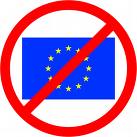The Blame Game
The scenario
The year is 2030 and the European Union is only a shadow of its glorious past. Looking back just over 20 years, it is clear that the financial crisis which hit the world in 2008 had its most profound effect on Europe.
By the middle of 2009, the countries in the EU had realized that the only way to stop a complete financial meltdown was to pump in billions of Euros into both the financial and real economies. It had become necessary for the government to save drowning companies by injecting huge amounts of capital in return for large stakes of the company. The idea at this early stage was that the government would sell back their equity as the market started to recover and the companies paid off their loans. However, no one at that stage realized that the worst was yet to come.
In 2010, after showing some early signs of recovery the economy took a nose dive again in what was described by many economists as the Double Dip. The billions of euros which had been pumped into the economy showed no signs of being recovered and the strain was beginning to show on the balance sheets of the all the major economies of the Union. Under pressure from their citizens the governments of the richer nations such as Germany & France, started to pull back their investments from other countries such as Eastern Europe, Asia & Africa. After all, each country had its own problems to cope with. There was a growing sense of gloom and despair as unemployment continued to rise to unimaginable levels throughout Europe.
By 2012, the effects of the economic crisis were still deeply visible throughout the union. The downward trend had flattened out but millions of jobs had been lost. The huge numbers of unemployed started to feel a large amount of resentment at the large number of immigrants within their countries. They blamed them for the lack of jobs and there was a noticeable shift in the mindset of the people with more and more people sharing conservative ideas about closing down borders to immigration and tightening laws for offshoring and outsourcing. This started to cause wide spent resentments among the poorer member nations.
2015. The last few elections in the countries of the EU started to show a rise of left wing parties pushing a more socialist agenda. They blamed the capitalist way for the crisis and came to the conclusion that the socialism with its ideals of equality and fairness was a much better concept. The huge government equities in major companies were leveraged to enforce new labor laws.
2020. By 2020 Socialism started to take a strong hold in Europe with almost all countries being governed by left wing governments. The socialist governments started to blame each other for the economic slowdown. For Example: the French and Germans blamed English banks for the crisis. The crisis had also effected countries in varying degrees. Many governments wanted to regain control of their monetary policies to devalue their currencies in order to improve exports and provide a much needed stimulus to their economies. The presence of a unified currency was thus seen as a roadblock to progress by many governments and some countries started to talk about giving up the Euro and going back to national currencies.<br\> The growth of socialist also led most governments to focus primarily on their own national agenda, thus ignoring worldwide issues like climate change and green technology. This led to a growing dependence by most EU countries on Russia.
2025.
People started re-looking at their identity. Till that time they believed in a unified EU, but as the EU was not able to keep the ship afloat, richer members considered the option of being the first to part ways so that they could be able to serve their people better.
That was the beginning of the desintegration.
